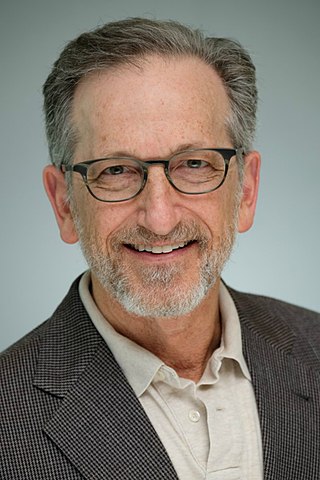
Arthritis is a term often used to mean any disorder that affects joints. Symptoms generally include joint pain and stiffness. Other symptoms may include redness, warmth, swelling, and decreased range of motion of the affected joints. In some types of arthritis, other organs are also affected. Onset can be gradual or sudden.

Rheumatoid arthritis (RA) is a long-term autoimmune disorder that primarily affects joints. It typically results in warm, swollen, and painful joints. Pain and stiffness often worsen following rest. Most commonly, the wrist and hands are involved, with the same joints typically involved on both sides of the body. The disease may also affect other parts of the body, including skin, eyes, lungs, heart, nerves, and blood. This may result in a low red blood cell count, inflammation around the lungs, and inflammation around the heart. Fever and low energy may also be present. Often, symptoms come on gradually over weeks to months.
Magnetic therapy is a pseudoscientific alternative medicine practice involving the weak static magnetic field produced by a permanent magnet which is placed on the body. It is similar to the alternative medicine practice of electromagnetic therapy, which uses a magnetic field generated by an electrically powered device. Magnet therapy products may include wristbands, jewelry, blankets, and wraps that have magnets incorporated into them.
Rheumatology is a branch of medicine devoted to the diagnosis and management of disorders whose common feature is inflammation in the bones, muscles, joints, and internal organs. Rheumatology covers more than 100 different complex diseases, collectively known as rheumatic diseases, which includes many forms of arthritis as well as lupus and Sjögren's syndrome. Doctors who have undergone formal training in rheumatology are called rheumatologists.

Methotrexate, formerly known as amethopterin, is a chemotherapy agent and immune-system suppressant. It is used to treat cancer, autoimmune diseases, and ectopic pregnancies. Types of cancers it is used for include breast cancer, leukemia, lung cancer, lymphoma, gestational trophoblastic disease, and osteosarcoma. Types of autoimmune diseases it is used for include psoriasis, rheumatoid arthritis, and Crohn's disease. It can be given by mouth or by injection.

Juvenile idiopathic arthritis (JIA), formerly known as juvenile rheumatoid arthritis (JRA), is the most common chronic rheumatic disease of childhood, affecting approximately 3.8 to 400 out of 100,000 children. Juvenile, in this context, refers to disease onset before 16 years of age, while idiopathic refers to a condition with no defined cause, and arthritis is inflammation within the joint.

Sulfasalazine, sold under the brand name Azulfidine among others, is a medication used to treat rheumatoid arthritis, ulcerative colitis, and Crohn's disease. It is considered by some to be a first-line treatment in rheumatoid arthritis. It is taken by mouth or can be administered rectally.

Penicillamine, sold under the brand name of Cuprimine among others, is a medication primarily used for the treatment of Wilson's disease. It is also used for people with kidney stones who have high urine cystine levels, rheumatoid arthritis, and various heavy metal poisonings. It is taken by mouth.

Gold-containing drugs are pharmaceuticals that contain gold. Sometimes these species are referred to as "gold salts". "Chrysotherapy" and "aurotherapy" are the applications of gold compounds to medicine. Research on the medicinal effects of gold began in 1935, primarily to reduce inflammation and to slow disease progression in patients with rheumatoid arthritis. The use of gold compounds has decreased since the 1980s because of numerous side effects and monitoring requirements, limited efficacy, and very slow onset of action. Most chemical compounds of gold, including some of the drugs discussed below, are not salts, but are examples of metal thiolate complexes.

Childhood arthritis is an umbrella term used to describe any rheumatic disease or chronic arthritis-related condition which affects individuals under the age of 16. There are several subtypes that differentiate themselves via prognosis, complications, and treatments. Most types are autoimmune disorders, where an individual's immune system may attack its own healthy tissues and cells.
Allen Caruthers Steere is an American rheumatologist. He is a professor of rheumatology at Harvard University and previously at Tufts University and Yale University. Steere and his mentor, Stephen Malawista of Yale University, are credited with discovering and naming Lyme disease, and he has published almost 300 scholarly articles on Lyme disease during his more than 40 years of studies of this infection. At a ceremony in Hartford, Connecticut in 1998, Governor John G. Rowland declared September 24 to be "Allen C. Steere Day".

Patient education is a planned interactive learning process designed to support and enable expert patients to manage their life with a disease and/or optimise their health and well-being.
Michael D. Lockshin is an American professor and medical researcher. He is known for his work as a researcher of autoimmune diseases, with focus on antiphospholipid syndrome and lupus. He is Professor Emeritus of Medicine and the Director Emeritus of the Barbara Volcker Center for Women and Rheumatic Disease at Hospital for Special Surgery. He retired from HSS on January 31, 2023.
Rheumatoid nodulosis is a cutaneous condition associated with rheumatoid arthritis, characterized by the appearance of multiple nodules, most often on the hands.
Fezakinumab is a human monoclonal antibody against interleukin-22, designed for the treatment of psoriasis and rheumatoid arthritis.
Sarilumab, sold under the brand name Kevzara, is a human monoclonal antibody medication against the interleukin-6 receptor. Regeneron Pharmaceuticals and Sanofi developed the drug for the treatment of rheumatoid arthritis (RA), for which it received US FDA approval on 22 May 2017 and European Medicines Agency approval on 23 June 2017.
P. R. Krishna Kumar was an Indian Ayurveda expert and managing director of The Arya Vaidya Pharmacy (Coimbatore) Ltd. He established The Ayurvedic Trust, overseeing AVCRI and AVP Research Foundation, a non-profit organisation promoting research in the Ayurveda. He was the chancellor of the Avinashilingam University, and the chairman of CARe Keralam, a resource centre involved in efforts to standardise Ayurvedic medicines. The Government of India awarded him the fourth-highest civilian honour of the Padma Shri, in 2009, for his contributions to Ayurveda.

Gary S. Firestein is an American rheumatologist, professor, and founding director of the Altman Clinical and Translational Research Institute (ACTRI) at the University of California San Diego and Senior Associate Vice Chancellor for Health Sciences at University of California, San Diego.

Robert H. Carter is an American rheumatologist and physician-scientist serving as the deputy director of the National Institute of Arthritis and Musculoskeletal and Skin Diseases (NIAMS) since 2008. He was the acting director of NIAMS from December 2018 until February 2021.

Josef Smolen is an Austrian rheumatologist and immunologist and professor emeritus at the Medical University of Vienna. Since 2018 he is chairman emeritus of the Department of Internal Medicine 3 and the Division of Rheumatology at the Medical University of Vienna and Vienna General Hospital and was the chairman of the 2nd Medical Department and Center for Diagnosis and Therapy of Rheumatic Diseases at the Lainz Hospital, now the Hietzing Clinic of the Vienna Health Association from 1989 to 2017.










